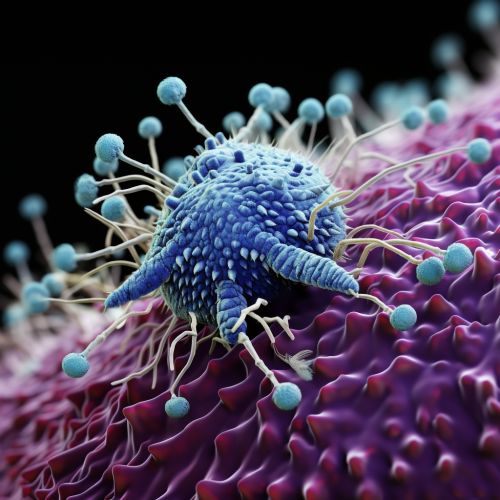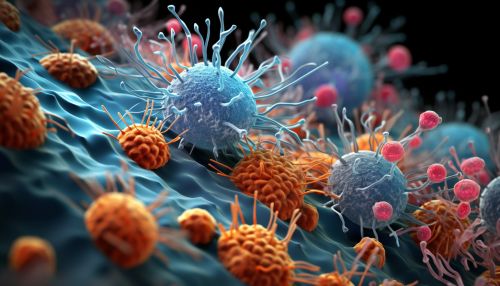Japanese encephalitis virus
Introduction
Japanese encephalitis virus (JEV) is a flavivirus related to dengue, yellow fever and West Nile viruses, and is spread by mosquitoes. JEV is the main cause of viral encephalitis in many countries of Asia with an estimated 68,000 clinical cases every year.
Classification
JEV is a virus of the family Flaviviridae and the genus Flavivirus. It is closely related to West Nile virus and St. Louis encephalitis virus.
Virology


JEV is an enveloped virus of approximately 50 nm in diameter. The viral genome is a positive-sense, single-stranded RNA molecule that is approximately 11,000 bases long. The genome is contained within a capsid that is surrounded by an envelope. Embedded in the envelope are two types of protein, E (envelope) and M (membrane) proteins. The E protein is responsible for the virus's ability to bind to and enter host cells.
Transmission
JEV is transmitted to humans through the bite of infected mosquitoes, primarily of the species Culex tritaeniorhynchus. The virus exists in a transmission cycle between mosquitoes, pigs and/or water birds. Humans can be infected when bitten by an infected mosquito.
Epidemiology
JEV is the leading cause of viral encephalitis in Asia, with 30,000-50,000 cases reported annually. Case-fatality rates range from 0.3% to 60% and depend on the population and area. In areas where the JEV is common, rates of infection among adults can reach 80%.
Clinical Manifestations
Most JEV infections are mild (fever and headache) or without apparent symptoms, but approximately 1 in 250 infections results in severe disease characterized by rapid onset of high fever, headache, neck stiffness, disorientation, coma, seizures, spastic paralysis and death.
Diagnosis
Diagnosis of JEV infection is based on detection of antibodies in serum or cerebrospinal fluid (CSF) using IgM-capture ELISA.
Treatment and Prevention
There is no specific treatment for JEV infection. Treatment is supportive, with assistance given for complications such as respiratory distress, seizures, and severe fever. Safe and effective vaccines are available to prevent JEV.
